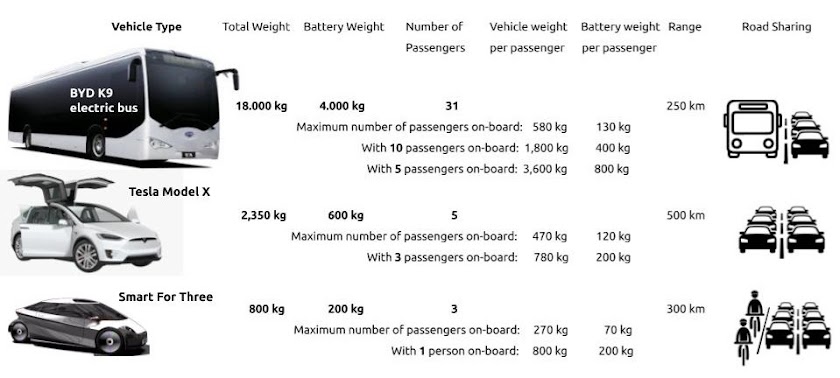The bus wars are over. Electricity — and China — won.
China has 421,000 electric buses. The United States has 300.
But in recent years, it has become overwhelmingly clear that nothing can compete with electricity for the highest efficiency and performance along with lowest emissions and lifetime cost, including fuel and maintenance.
“Everything that has an urban drive cycle will ultimately be an electric vehicle,” Ryan Popple, the president and CEO of Proterra, the leading U.S. electric bus company, explained to ThinkProgress back in 2016.
But electric buses aren’t just winning because they have no tailpipe emissions. They are also so efficient they have one-fourth the per-mile fueling cost of regular diesel buses and the other alternatives — even running on renewable power, thanks to the rapid price drops of solar and wind power.
In addition, electric buses have considerably lower maintenance costs, as many studieshave shown. So over the 10- to 12-year lifetime of a typical urban transport bus, an electric bus can save $400,000 in total operational costs compared to a typical diesel.
The Chinese have a 99% stranglehold on production and use of electric batteries. The United States has little chance of matching China until we have a president and Congress that understand that the urgency and inevitability of a carbon-free future means the nation that makes the biggest bets on clean technology will reap the most rewards in the years to come.

China has 421,000 electric buses. The United States has 300.
But in recent years, it has become overwhelmingly clear that nothing can compete with electricity for the highest efficiency and performance along with lowest emissions and lifetime cost, including fuel and maintenance.
“Everything that has an urban drive cycle will ultimately be an electric vehicle,” Ryan Popple, the president and CEO of Proterra, the leading U.S. electric bus company, explained to ThinkProgress back in 2016.
But electric buses aren’t just winning because they have no tailpipe emissions. They are also so efficient they have one-fourth the per-mile fueling cost of regular diesel buses and the other alternatives — even running on renewable power, thanks to the rapid price drops of solar and wind power.
In addition, electric buses have considerably lower maintenance costs, as many studieshave shown. So over the 10- to 12-year lifetime of a typical urban transport bus, an electric bus can save $400,000 in total operational costs compared to a typical diesel.
The Chinese have a 99% stranglehold on production and use of electric batteries. The United States has little chance of matching China until we have a president and Congress that understand that the urgency and inevitability of a carbon-free future means the nation that makes the biggest bets on clean technology will reap the most rewards in the years to come.



